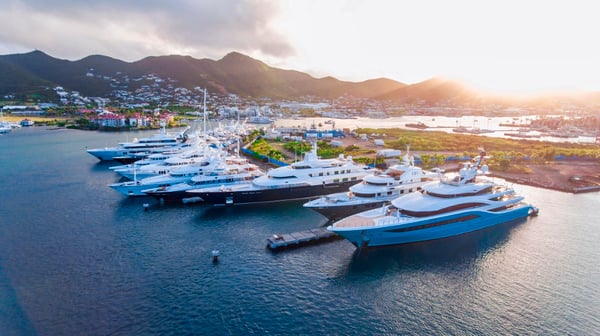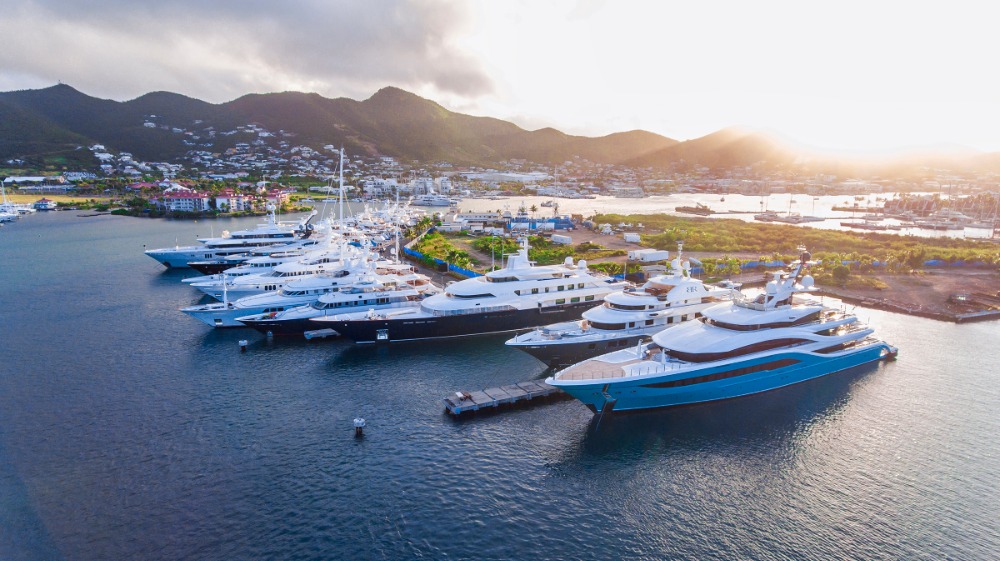The St. Maarten government has approved a new protocol for yachts for the 2020/21 Caribbean season. The protocol, set out in the following, is subject to change based on the continuously evolving situation.
In terms of testing protocols for crew and guests arriving by plane, in general air arrivals must have a negative COVID-19 rt-PCR test taken within 120 hours prior to departure to St. Maarten (the last leg in case of connecting flights) and complete of the relevant form prior to arrival, which can be found here. This protocol applies to all arrivals, except those flying from a country with a ‘low risk of transmission’, as defined by the government here.

The protocol acknowledges that some arriving crew are coming from far-away locations, and the time of transit may make it difficult to meet the above criterion. In such cases, embarking crew members will be permitted to come to St. Maarten from countries including, but not limited to, Australia, New Zealand, the Philippines and South Africa. To be permitted to board aircraft, such crew members must show proof of a negative rt-PCR test taken within 120 hours of departure from their original destination, as well as their seaman’s logbook. Furthermore, St. Maarten will retest such crew upon arrival if the test is not valid or expired, at the cost of the individual or vessel.
Find out what Covid testing protocols are in place for yachts at other marinas around the world:
For arriving vessels, if a vessel is arriving from a country with a low risk of transmission, no test is required. If the vessel is arriving from a moderate or high-risk country, a rt-PCR test is required 120 hours prior to departure from the last port of call, with the determination of the risk level of a country considered as when the vessel departed from the relevant country. Such rt-PCR test results, along with all other entrance documents, must be supplied to a yacht agent in advance of arrival. No other electronic forms are required for vessel arrival.
If testing was not possible prior to departure from the vessel’s last port, the vessel can enter St. Maarten under quarantine, with testing to be done within 24 hours of arrival. The appointed yacht agent can coordinate testing upon request, and the vessel must remain under quarantine until negative results are received.
In terms of transit exceptions, vessels are able to come to St. Maarten without testing for a maximum of 48 hours in transit (for fuelling, provisioning, etc.). However, all on board must remain in quarantine on board under this option.
St. Maarten Marine Trades Association continues to talk to local governments about the possibility of establishing cruising bubbles between certain Caribbean islands, which would enable yachts to move around with a certain amount of freedom in the region. There has been no progress on this yet, however, the association points out that the new protocol requires no testing from yachts arriving in St. Maarten from low-risk locations, which at this time includes Anguilla and St Barths. The government has set out the risk levels of different countries here.
Source: Superyacht News






